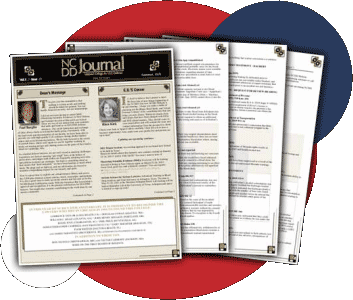DUI Laws in Vermont

COMMON ACRONYM(S) USED TO DESCRIBE DRUNK DRIVING: In Vermont, driving under the influence (DUI),driving while impaired (DWI), driving under the influence of drugs (DUID), or operating under the influence (OUI), are all forms of drunk driving.
PROHIBITED ACTIVITY: It is illegal to operate, attempt to operate, or be in actual physical control of any vehicle on a highway when you are under the influence of intoxicating liquor (DUI) when your blood alcohol concentration is0.08 or more (DWI) or you are under the combined influence of alcohol and/or another drug to a degree which renders you incapable of driving safely(DUID). You can be charged in Vermont for operating under the influence of drugs, even legal prescription drugs, if these drugs impair your ability to safely operate a vehicle. Vermont also criminalizes snowmobiling under the influence and boating under the influence.
PROHIBITED ACTIVITY: It is illegal to operate, attempt to operate, or be in actual physical control of any vehicle on a highway when you are under the influence of intoxicating liquor (DUI) when your blood alcohol concentration is0.08 or more (DWI) or you are under the combined influence of alcohol and/or another drug to a degree which renders you incapable of driving safely(DUID). You can be charged in Vermont for operating under the influence of drugs, even legal prescription drugs, if these drugs impair your ability to safely operate a vehicle. Vermont also criminalizes snowmobiling under the influence and boating under the influence.
CRIMINAL REFUSAL(IMPLIED CONSENT): If you have a previousconvictionin any state for drunk driving or an equivalent offense and you decline a law enforcement officers reasonable request to submit to an evidentiary test, then you may be charged with Criminal Refusal. Criminal Refusal counts as a second, third, or subsequent offense. You have a right to refuse road-side field sobriety tests (FSTs) and preliminary breath tests (PBT) in Vermont. The PBT is not an evidentiary test and is generally not admissible to a jury.
CIVIL PENALTIES: A first offense conviction for Vermont DUI requires 90 days civil suspension of your Vermont license or privilege to operate a motor vehicle in Vermont. If you have no previous drunk driving or equivalent convictions in any state, then refusing to provide a breath test sample at the police station invokes a 6 month civil suspension. The license suspension penalty for a second DUI conviction or second civil is 18 months and starts immediately. The suspension penalty for a third or subsequent offense is lifetime suspension, but you may be eligible to apply for the total abstinence reinstatement program after 3 years.
CRIMINAL PENALTIES: If you have no prior DUI convictions less than 15 years apart, and your prior DUI conviction was before July 1, 1991, then you are considered a first time offender. A first offense for Vermont DUI is a serious misdemeanor and can send you to jail for up to 2 years and/or $750.00 in fines. A second offense can send you to jail for up to 2 years and/or $1,500.00 in fines, and a third or subsequent offense is a felony and can send you to jail for up to 5 years and/or $2,500.00 in fines. First offenses have no statutory minimum sentence. The minimum sentence for a second offense is 200 hours of community service or 60 hours of imprisonment, or successful completion of residential alcohol treatment at your expense. The minimum sentence for a third or subsequent offense is at least 400 hours of community service or 100 hours of imprisonment or successful completion of residential alcohol treatment at your expense. Vermont does not have an ignition interlock device (IID) program, instead, the State may seek an order to have your vehicle mechanically immobilized at your expense, or may seek an order of forfeiture.
WORK/ HARDSHIP PERMIT: Vermont does not authorize any work, hardship, or Cinderella permit during the period of civil or criminal license suspension. Generally, the civil and criminal suspensions are served concurrently, i.e., they run together at the same time.
LICENSE REINSTATEMENT: In addition to serving your suspension, Vermont requires you pay court fees, complete a counseling program, carry S.R. 22 insurance for 3 years, and pay a reinstatement fee. In addition, there are a number of surcharges and fees associated with a DUI conviction. The counseling program is called project C.R.A.S.H. and is administered by the Vermont Department of Health. S.R. 22 insurance is statement of financial responsibility insurance and provides collision coverage no matter what vehicle you operate. The reinstatement fee is currently $71.00.
FIRST TIME OFFENDERPROGRAM/CWOF/DEFERRED Vermont has no first time offender program, and no Continuation Without a Finding. Vermont does not prohibit a deferred sentence on a DUI, but such dispositions are exceedingly rare. Disclaimer: the above should be considered for general reference only. You should consult a qualified DUI lawyer for specific information and application of the law to the facts of your case.




